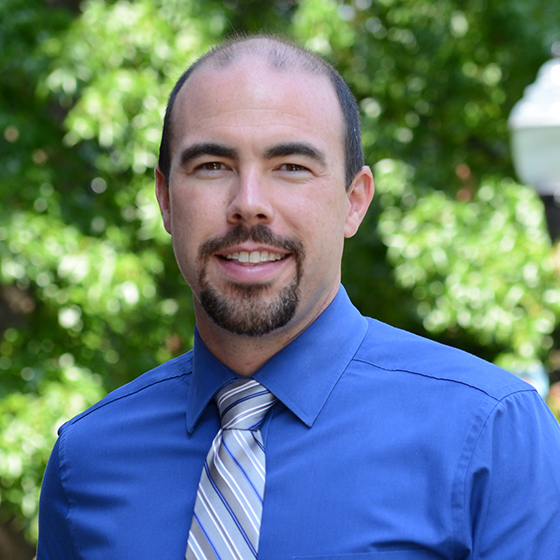Looking to the Future of the Humanities

Professor Corey Campion is a strong believer in interdisciplinary learning and the humanities.
Corey Campion
Program
- History (B.A.)
- Humanities (M.A.)
Department
- History
Degree
Ph.D.
Title
Assistant Professor of History and Global Studies, Director of the M.A. in Humanities
For Dr. Corey Campion, teaching is a “passion and privilege” and interdisciplinary learning is key. As the head of Hood College’s Master of Arts in Humanities program, he feels strongly about the role of the humanities in higher education.
In fact, he feels so strongly that he has just published “Whither the Humanities—Reinventing the Relevance of an Essential and Embattled Field.” Published in the journal Arts & Humanities in Higher Education, the article looks at some of the struggles of many humanities programs along with why they are still incredibly valuable along with ways to help strengthen them.
Dr. Campion himself has a diverse background which he carries into his teaching and writing. In his own education, he trained as a student of language and culture before turning to foreign affairs and then history in graduate school.
He says, “along the way, I have enjoyed drawing on my training in various fields to explore a variety of topics from European history, to the history of food, the meaning of vacations, and the current crisis in honeybee populations.” He lives what he teaches, from sharing his experiences living in France and Germany (he speaks French, German, and Spanish) to being a beekeeper with his own apiary. He gives his students real background to their theoretical knowledge. He wants those students to know “how interdisciplinary work can enhance their own learning in a given discipline and to understand better the world in which they live”.
In his article, Campion explains his thoughts on many current humanities programs, and lays out many of the struggles that humanities programs in higher education are experiencing. These include the perceptions of many people that the humanities are “nice, but not necessary” since they don’t teach specific skills aimed at a certain career as a math or science degree might. Humanities teaches not only analytical and critical thinking skills, but empathy and communication, which are key for many careers. Campion believes that one of the stumbling blocks for these programs is stagnation – that many are still doing things the same way, and may be “committed to teaching models that support faculty rather than student needs.” For many graduate students, whose careers may not be in academia, but in other fields where an understanding of people as well as content is key, an interdisciplinary approach which teaches how to be a humanist along with the content may be the best approach.
Campion’s article sets out his ideas for how humanities programs can best serve colleges, students, and communities.
“While humanities faculty should not abandon their traditional mission to attain and impart a deeper understanding of the human condition through the study of history, literature, and art, they should also establish their classrooms as a place where all students engage those questions of politics, economics, medicine, and the environment that are so relevant to contemporary society.” He sees the opportunities for interdisciplinary teaching and learning at Hood as “exciting, and I share the College's convictions with respect to the value of the liberal arts in the 21st century.”
The college is also excited about his contributions to Hood and the higher education community at large!
Are you ready to say Hello?
Choose a Pathway
Information will vary based on program level. Select a path to find the information you're looking for!
